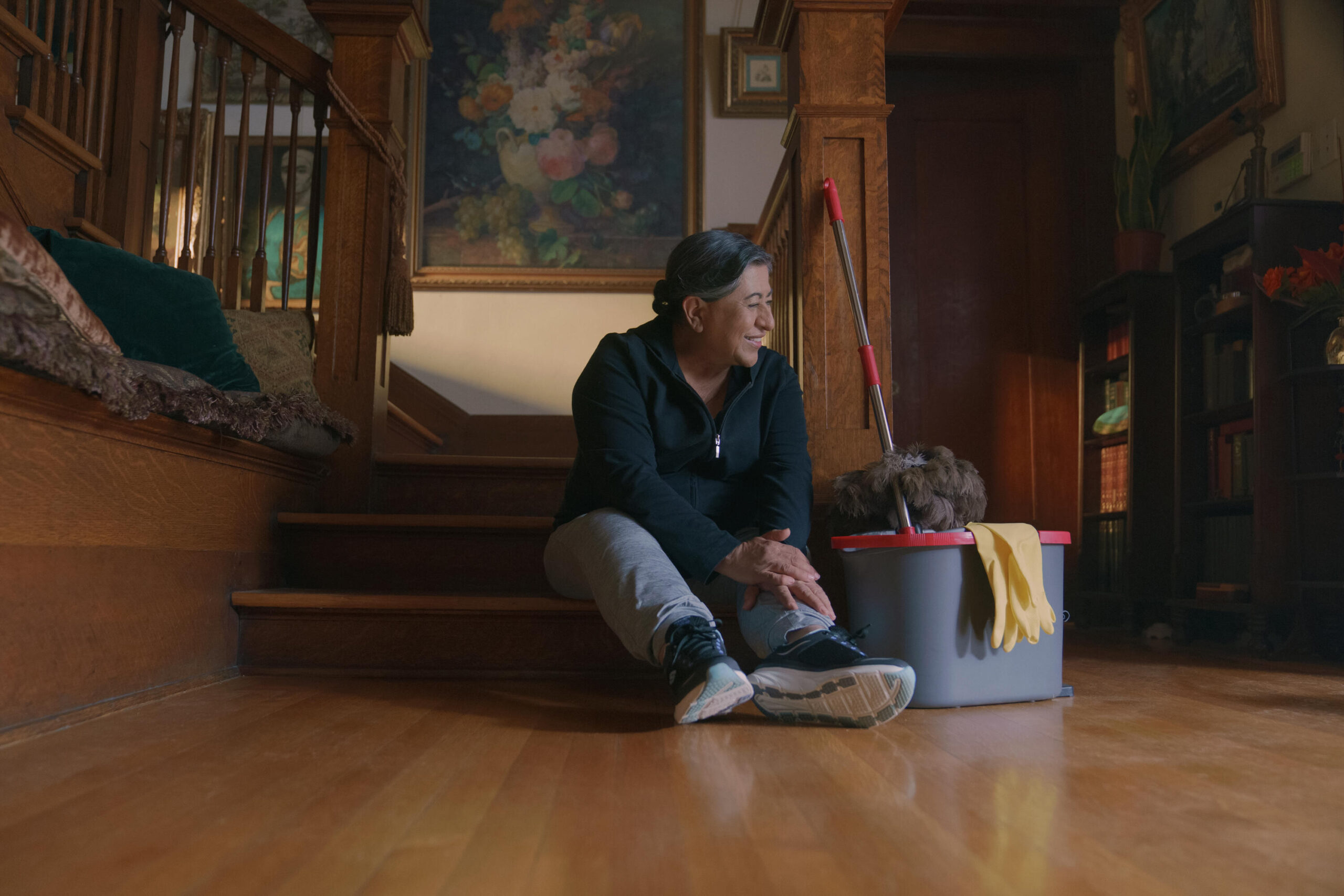Laura Patalano has become a symbol of señora hustle culture. You may recognize her as Julio Lopez’ mom, Esperanza, on Hulu’s This Fool or as Anna Morales’ mom Beatriz on Netflix’s Gentefied. Either way, in both shows she is driving home a lesson Latinas need to hear.
In This Fool, Patalano’s character is newly retired and planning on spending her free time gardening, but by the time 7:00 a.m. hits on her first day, she’s done planting her flower beds. Her own mother’s routine of attending church, followed by a trip to the 99 cent store, is unappealing and so, exasperated by all the free time she has on her hands, she cleans her home, and even goes next door to do laundry for her son and his roommates.
What follows is a conversation that is almost verbatim one I’ve had with my own mother, including her saying “No me gusta relajarme.”
In Gentefied, Patalano’s character works long hours at a factory job sewing garments, and when the topic of self-care is brought up by a coworker, she shares the same sentiments she has already expressed in the multiverse of being an exhausted, overworked mom, “Yo no tengo tiempo de #metime and you know what? I don’t care.”

But why do we think that working ourselves into depletion is more acceptable than making time to rest?
Again, I’m reminded of my own mom. If I call her, and she happens to be resting, her response is that she is “being lazy,” not resting. She’s quick to judge herself for being “unproductive,” however impossible it is to be productive ALL of the time. It is perfectly acceptable to rest, in fact, it’s necessary to avoid burnout and other health-related issues that exhaustion can cause.
Nevertheless, I do understand how throughout the generations the need to always be productive (in every capacity) has become ingrained into our culture. As a whole, hustle is different for Latinos than it is for non-minority groups. It means working harder than the rest, often without the advantages afforded to those who haven’t been historically oppressed. Throw in persistent gender norms, like shouldering household responsibilities in addition to caring for children and full-time work, and you begin to see how exhaustion transforms into resentment, anger, or frustration. Once these feelings start affecting our interactions, they eventually negatively impact our relationships.
We saw this play out in Gentefied between Patalano’s character, Beatriz, and her daughter Anna. Until, eventually, one confrontation became the catalyst for her self-care journey (which included indulging in macarons, eclairs, and fruit tarts, while donning a sheet mask and cozy slippers. She really went from zero to 100 there).
What happened was that her character realized that she wanted a better life for her daughters, and in turn a more balanced life for herself, which means working hard AND making time for rest or saving up for an indulgence.

More than ever, self-care is a topic of conversation, and rightfully so. We can’t continue to equate productivity with worthiness, otherwise we will never be worthy of rest, and that is unacceptable. We deserve downtime and to receive the care we want for our loved ones as well.
So if you’ve been mulling over whether or not you should take a wellness day to catch up on your favorite TV shows or to book that massage or facial, this is your sign to do it. Laura Patalano is telling you to.

